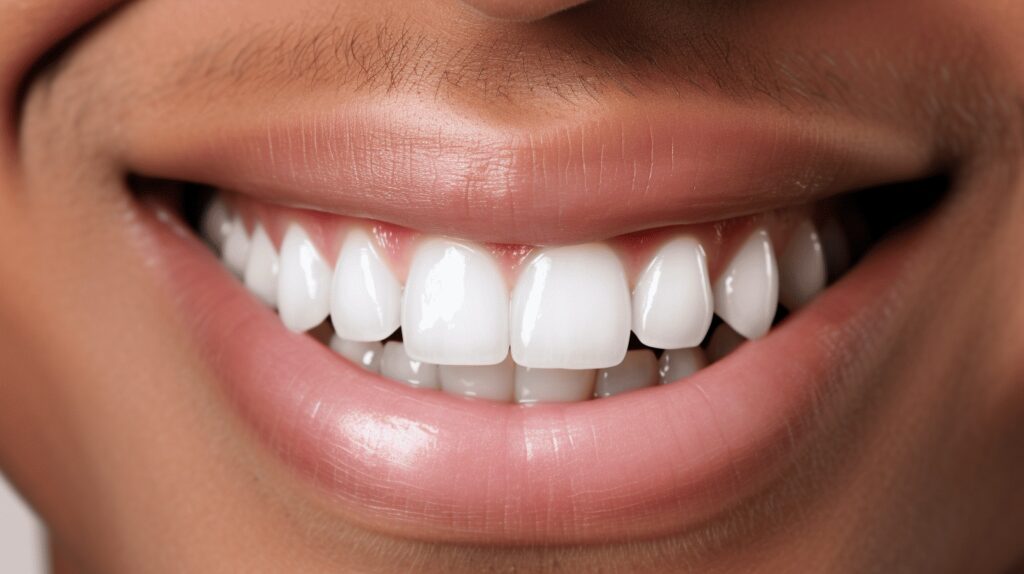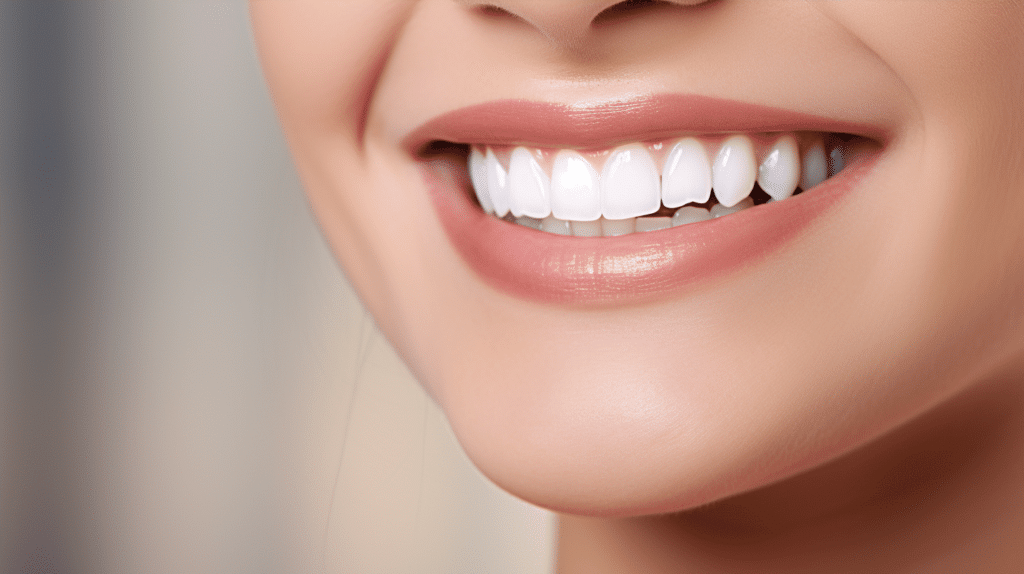Taking a moment to picture a life with no dental issues – wonderful, isn’t it?
Well, we’re here to tell you that it’s absolutely achievable! Achieving optimal oral health shouldn’t be a mere afterthought; it’s key to our overall wellbeing and can significantly improve our quality of life.
Plus, who wouldn’t want a radiant, toothy smile, free from cavities or gum diseases?
Understanding the root causes of common dental problems and learning about preventive strategies is the first step towards building an effective oral-care routine.
That’s precisely what we will explore in this piece. Keep reading as we delve deeper into the subject of Tooth Decay, its prevention methods, and why maintaining good oral hygiene is so vital. 🦷👍
From brushing techniques to the role of fluoride, we’re looking forward to an exciting journey through the world of dental health with you.
Shall we get started?
Table of Contents
Understanding Tooth Decay
What is Tooth Decay?
Tooth decay, also referred to as dental caries, is a common health problem that most of us experience at some point in our lives.
Epitomizing a quintessential dental nuisance, tooth decay occurs when the enamel—the outermost layer protecting our pearly whites—starts deteriorating.
But, how does this process take place? 😨
Far from being an overnight affair, tooth decay is a slow process that kicks off with the accumulation of plaque—a sticky film of bacteria — on your teeth.
When we munch on sugary snacks or sip on sodas, the bacteria in our mouth feed on these sugars and release acids. Over time, these acids get down to business, gnawing at the enamel and causing cavities. Ouch!
And, that my friend, is the start of tooth decay, forever the arch-nemesis of a radiant smile!
Causes of Tooth Decay
Now that we’ve unveiled what tooth decay is, let’s dig deeper into what causes this dental dismay.
Below are some of the prime culprits:
- Poor Oral Hygiene: Skipping daily brushing and flossing lets plaque build up and cavities form. 😷
- A Sweet Tooth: A diet high in sugary, starchy, and acidic foods accelerates tooth decay. Too many sweet treats spell trouble for teeth. 🍬
- Dry Mouth: Saliva washes away food particles and neutralizes acids produced by bacteria in your mouth, protecting you from tooth decay. When saliva production is low, your risk for cavities jumps. 🌵
- Genetics: Unfortunately, some people are more prone to tooth decay due to genetic factors. 🧬
While these are some common causes, it’s important to remember that every mouth is different.
Factors like age, existing medical conditions, and even some medications could also contribute to tooth decay.
Stay ahead of the game, and keep your tooth decay sources in check.
Because understanding tooth decay isn’t only about knowing its definition. It’s also about knowing its causes, recognizing the symptoms, and adopting effective methods of prevention.
And remember, a healthy smile is always in style. 😃
Tips for Preventing Tooth Decay
We all desire healthy and cavity-free teeth, but maintenance often seems more of a challenge than it has to be.
The good news?
Keeping tooth decay at bay could be simpler than you think. It mainly involves developing and maintaining a few easy habits.
These include proper brushing and flossing, using mouthwash, eating a balanced diet, limiting sugary foods, and scheduling regular dental check-ups.
Let’s delve into these further.
Proper Brushing Technique
A good brushing routine is fundamental to dental health.
But it’s not just about brushing your teeth any old way. It’s about using the correct technique.
Hold your brush at a slight angle, aiming the bristles toward the area where your tooth meets your gum. Gently brush using short back-and-forth motions. Don’t forget to brush the outer, inner, and chewing surfaces of your teeth, and use the tip of the brush to clean the inside surfaces of your front teeth.
Flossing Regularly
Brushing alone can’t fully clean your mouth. It often misses the tiny spaces in-between your teeth.
This is where regular flossing comes in. Besides removing food particles that your toothbrush can’t reach, flossing helps reduce plaque and lower your risk of tooth decay.
Aim to floss at least once a day, preferably before bedtime.
Using Mouthwash
Mouthwash doesn’t just freshen your breath. It does an excellent job of getting rid of lingering bacteria, especially in hard-to-reach areas.
Using mouthwash after brushing and flossing can further enhance your dental hygiene routine.
Eating a Balanced Diet
Your diet plays a crucial role in your dental health. Certain nutrients, especially vitamin A and D, are vital for healthy teeth and gums.
So be sure to eat a balanced diet filled with a variety of foods including fruits, vegetables, lean protein, and dairy products.
Limiting Sugary Foods and Drinks
Sugar is not your teeth’s friend. The bacteria in your mouth decomposes sugar, producing acids that eat away at your enamel, leading to tooth decay.
So, cutting back on sugary drinks and treats can help keep your teeth healthy.
And when you do consume them, make sure to rinse your mouth or brush your teeth afterwards.
Regular Dental Check-ups
Finally, despite our best efforts, tooth decay can still creep in unnoticed.
Regular dental check-ups help identify early signs of decay or other dental problems, allowing for timely treatment.
Aim for a check-up every six months or as often as your dentist recommends.
Remember, your teeth are meant to last a lifetime. These steps can help ensure they stay strong and healthy.
So give these tips a whirl, and enjoy happy, healthier smiles every day!
Benefits of Good Oral Health
Beyond a bright smile and fresh breath, there’s a significant aspect of good oral hygiene that we often tend to overlook.
Excellent oral health doesn’t just reward us with a pearly white smile—it lays the foundation of our overall well-being.
How, you ask?
Hang in there, let’s bite into the details! 🦷
Prevention of Dental Issues
First and foremost, consistent and proper dental care can save us from a host of dental issues.
Here’s what diligent oral care can ward off:
- Tooth Decay: Regular brushing and flossing can limit plaque, a sticky film of bacteria that causes decay.
- Gum Disease: If plaque builds up, it can lead to gum disease, resulting in inflammation and even tooth loss! 😱
- Bad Breath: No brainer here! Brushing, flossing, and regular dental checks ensure your breath stays fresh.
By avoiding these dental troubles, we save ourselves from painful (and often expensive) dentist visits and maintain our tooth’s health into our later years.
In essence, a dental routine today is an investment in our future selves! Now isn’t that worth smiling about? 😁
Improved Overall Health
But did we know that our oral health could influence our overall health? Yes, we’re serious! 🤯
A sparkling mouth can lead to a shining bill of health.
Medical research links oral health to various systemic diseases, including diabetes, heart disease, and even stroke.
Conversely, conditions like Diabetes also impact oral health, causing complications like gum disease.
Quite fascinatingly, maintaining oral hygiene can therefore play a role in managing these health conditions.
Here’s why:
- Heart Disease: Bacterial infection from periodontitis, a severe form of gum disease, can get into the bloodstream and affect the heart.
- Stroke: The same bacteria also can lead to blockages in the brain, which can result in strokes.
- Diabetes: Inflammation in the mouth weakens the body’s ability to control blood sugar, making managing Diabetes harder.
So, let’s not consider our oral health routine as just a quick two-minute brush and hurried floss.
It’s much more than that—it’s a step towards a healthier, happier us!
So let’s go ahead and make those minutes count, for our smiles and our health! 😄 💪
Common Dental Issues Associated with Poor Oral Health
Why does it seem like enjoying a candy bar, slurping an icy treat, or even biting into a crisp apple come with a side of dental trouble?
That’s probably because our teeth and gums often end up bearing the brunt of our lifestyle choices, eventually leading to a host of dental health problems.
While some dental problems may seem minor 🦷, they often have the potential to escalate into serious issues if left untreated.
In this section, we’re diving into the common dental problems associated with poor oral health and how we can prevent them through proper dental hygiene.
Now, let’s talk about some of these issues.
Gum Disease
Many of us are guilty of disregarding the importance of flossing daily, aren’t we? 😖
Well, this simple neglect can often lead to a dental enemy among us: Gum disease. Gum disease, commonly recognized as periodontal disease, progresses in two stages: Gingivitis and Periodontitis.
- Gingivitis, often caused by the buildup of plaque around the gum line, results in red, swollen, and bleeding gums.
- Periodontitis, a more severe form of inflammation that damages the soft tissue and destroys the bone, leading to tooth loss.
Take note, though—consistently following a regular oral hygiene routine can help prevent periodontal disease from progressing or, better yet, even developing in the first place!
Tooth Sensitivity
Raise your hand if you’ve winced after biting into an ice cream 🙋♀️🙋♂️!
Tooth sensitivity, also known as “dentin hypersensitivity,” can make eating and drinking a less enjoyable experience.
Various factors can lead to sensitive teeth, such as tooth erosion due to acidic foods and drinks, tooth decay, worn fillings, gum disease, or even brushing with too much force.
But, don’t you worry! Fortunately, tooth sensitivity is treatable. Regular visits to your dentist and using desensitizing toothpaste can make a significant difference.
Bad Breath
Ever tried to subtly check if you’re the one with the bad breath while in a conversation with someone?
Let’s admit it; we’ve all been there. Clinically referred to as Halitosis, bad breath can result from the buildup of bacteria in the mouth due to food particles left behind after eating.
Leaving this untreated could lead to periodontal diseases.
Keeping bad breath at bay requires maintaining an effective oral hygiene routine, which will keep your mouth smelling fresh and also contribute significantly to your overall health.
Therefore, it is pretty clear that oral health is not something we can afford to neglect.
So, let’s make those dental routines a priority, sharpening those pearly whites and ensuring they stay healthy for a lifetime.
Remember, a stitch in time saves nine!
Up next, let’s check out our ultimate guide on how to maintain good oral hygiene, which walks you through all the necessary steps for a bright, healthy smile. 😃
The Role of Fluoride in Preventing Tooth Decay
Fluoride: it’s one of those ingredients that make an appearance on nearly every tube of toothpaste, but have you ever stopped to wonder why?
Well, it’s an absolute game-changer when it comes to tooth decay prevention.
Inevitably, knowledge about this secret ally in your oral health kit will empower you to make more informed decisions about your dental care routine.
So, let’s dive into understanding the role of fluoride in preventing tooth decay!
Fluoride, a naturally occurring mineral, plays a vital role in oral health, mainly because of its ability to:
- Fight tooth decay
- Repair early stages of tooth damage
- Strengthen tooth enamel
When it comes to the battle against tooth decay, fluoride is like that trusty knight in shining armor. It’s ready to combat harmful bacteria and acids that cause cavities!
How so?
When you consume foods loaded with sugars and carbohydrates, they inevitably leave behind a bad mix of bacteria and acids.
Luckily, fluoride steps in, disrupting the acid-producing process of these bacteria, helping maintain a healthier and happier mouth!
Now, what if we told you that fluoride could turn back time? That’s right!
In the early stages of tooth damage, this clever mineral works its magic by promoting “remineralization”. This is a natural repair process where minerals are deposited back onto the tooth enamel, thus reversing early signs of decay. Quite a remarkable trick, don’t you think?
And if that’s not impressive enough, fluoride also serves as a shield, strengthening your tooth enamel and making it more resistant to decay. Think of it as a self-care regime for your teeth, providing the extra fortification needed to withstand the daily onslaught of acids and bacteria.
Sure, but what’s the best way to get our daily dose of fluoride, you may ask? Well, fluoridated water, certain foods, and dental care products containing fluoride are all excellent sources.
Also, consider an occasional fluoride treatment from your dentist for an added boost.
So, next time you pick a tube of toothpaste, take a moment to appreciate the hard work fluoride does in the background, keeping your smile brighter and healthier!
Just remember, a bit of knowledge could save you from unnecessary dental worries down the line.
As we love to say: “Your mouth is a mirror to your health. Take care of it, and it’ll take care of you!”
So amigos, let’s embrace fluoride, our true dental health hero, and wave goodbye to tooth decay!
Importance of Teaching Good Oral Hygiene Habits to Children
Let’s talk teeth! 😄
As any dentist will tell you, establishing good oral hygiene habits from a young age is instrumental in maintaining a healthy mouth throughout one’s life.
And, there’s more at stake than just a blinding white smile. Good oral hygiene habits in children can help prevent potential problems such as cavities, gum disease, and tooth loss, not to mention a lifetime of dentist anxiety.
That said, it’s crucial that we arm our little ones with the right tools and practices to ensure a lifetime of happy, healthy smiles.
Good oral hygiene starts young
Building good oral hygiene habits should start as soon as your child’s first tooth appears.
Start by gently cleaning their gums with a soft baby toothbrush or cloth and water. As they get older and more teeth begin to come in, introduce a toothbrush and a non-fluoride toothpaste.
Here are some key guidelines to assist you in building a robust oral hygiene routine for your child:
- Introduce Toothbrush Early: Your child should get used to the sensation of brushing. Start with a soft-bristled brush and work your way up as they get older.
- Make it Fun😄: Make brushing a fun activity by doing it together, using fun toothbrushes, or introducing a tooth-brushing song.
- Dental Visits: Make your child’s first visit to the dentist a pleasant one. This helps concur any fear they may have towards dental visits in the future.
- Healthy Diet: Encourage a diet full of fruits, vegetables, and low in sugars. This can not only help keep your child’s teeth healthy but also promotes a well-balanced lifestyle.
“You don’t have to brush all the teeth, just the ones you want to keep” – Unknown
This quote humorously underscores the seriousness of maintaining oral hygiene.
Imagine the regret one may feel when realizing they could have prevented their dental issues by adopting good hygiene habits during their childhood.
Such a scenario highlights the importance of instilling these habits in kids early.
Remember: teaching your kiddos about good oral hygiene is a long game. It may take some patience, and there will definitely be some messy moments, but before you know it, they’ll be rushing into the bathroom every morning and night excited to brush, all on their own.
There’s no better reward than knowing you’ve set them up for a lifetime of good oral health.
Keep going, and keep smiling!
Conclusion
Safeguarding your tooth from decay is more than just about maintaining a picture-perfect smile. It’s a crucial part of your overall health and well-being.
Embrace these effective oral hygiene practices and experience the joy of healthy teeth and a dazzling smile.
At Wilshire Smile Studio, our commitment is to ensure your oral wellbeing, offering a comprehensive range of dental services to tackle any issues head-on and provide preventative measures to maintain a happy, healthy mouth.
Remember, good oral health does not stop at brushing and flossing; it requires regular visits to your dentist, balanced nutrition, and the wisdom to limit sugary treats.
So, let’s promise ourselves to make oral hygiene a priority today for a worry-free, healthy smile tomorrow.
You are never alone on your journey to excellent dental health – we at Wilshire Smile Studio are always here to guide and support you in maintaining that captivating smile!
Secure your oral health today by booking a free consultation with us online or calling (323) DENTIST (323-336-8478)
Frequently Asked Questions
1. What are some common causes of tooth decay?
Some common causes of tooth decay include poor oral hygiene, consumption of sugary and acidic foods and drinks, frequent snacking, lack of fluoride, and dry mouth.
2. How can I prevent tooth decay?
To prevent tooth decay, you should brush your teeth at least twice a day using fluoride toothpaste, floss daily, limit sugary and acidic food and drink intake, avoid frequent snacking, drink plenty of water, and visit your dentist regularly for check-ups and cleanings.
3. Is fluoride important for preventing tooth decay?
Yes, fluoride is important for preventing tooth decay as it strengthens tooth enamel and makes it more resistant to acid attacks from bacteria. You can get fluoride from toothpaste, mouthwash, and even fluoridated water.
4. Are there any natural remedies for preventing tooth decay?
While maintaining good oral hygiene is essential, certain natural remedies may help prevent tooth decay. These include oil pulling with coconut oil, using fluoride-free toothpaste with baking soda, and consuming foods rich in calcium and vitamin D.
5. How often should I visit the dentist for preventive check-ups?
It is recommended to visit the dentist for preventive check-ups at least twice a year. These regular visits allow the dentist to identify and address any oral health issues early on, including tooth decay.





